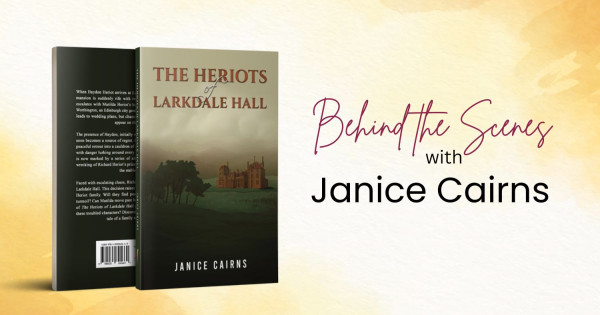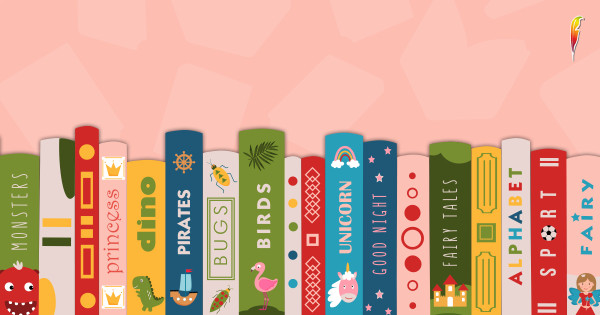
What is Hybrid Publishing?
Is this the same as Subsidy Publishing?
There is a lot of confusion online about what hybrid publishing actually is and we’d like to help clear a few things up, as some bloggers and reviewers have written about how publishing is ‘black and white’, rather than a spectrum. This causes the authors to get misinformed, which means that some books might not get published, and great reads, unfortunately, slip through the cracks.
Subsidy Publishing
A Subsidy publisher is a company that requires you to pay some initial money up front and then once paid, the company does nothing for the book. Most of the times, books do not make it to the printing phase, there are zero editing efforts, no marketing and nothing is done that a publisher is required to do. There are many instances where they come back asking for more money, with no indication of where it will be spent. This is the definition of a scam, false promises and no results. This type of publisher will publish every single manuscript which is sent to them.
Traditional Publishing
The traditional publishing house will edit, print, publish and then market the book at no cost to the author, they then make the money back entirely through sales; of course, the author profits as well. Some authors are also offered an advance prior to their book being published.
The difficulty is that since a lot of money is invested into a book before it even hits the shelves, each book is marked as a ‘high risk’. The publisher will have underlying control of the book, perhaps wanting a change in the details of your story or will have final say on the book cover design. However, this traditional plan is vulnerable as so many great books can be turned down. Take a look at this list of brilliant books that were turned down many times by traditional publishers. Luckily, these ones were finally published but it does beg the question, ‘how many great stories might have been missed’?
- Lord of the Flies by William Golding (rejected 20 times)
- Gone with the Wind by Margaret Mitchell (rejected 38 times)
- Anne Frank’s Diary (rejected 15 times)
- The Tale of Peter Rabbit by Beatrix Potter (she had to self-publish due to constant rejections)
- Carrie by Stephen King (Rejected 30 times)
- The Jungle Book by Rudyard Kipling (rejected as he was told he didn’t know how to use the English language)
- Harry Potter and the Philosopher’s Stone (rejected 12 times)
Self-Publishing/Indie Publishing
The second most common option is self-publishing, where you pay money for the services to get yourself a nice cover, editing services, formatting services etc. which gets your book to a professional level before you can sell your book. This puts you in control but can become costly, not only with your money but also your time.
You will be responsible for all the marketing of the book, which includes acquiring industry contacts to not only print the book for a reasonable price but also publicise the release and make it available to get on the shelves of stores.
The director of The Alliance of Independent Authors, Orna Ross has offered her advice when it comes to self-publishing, saying that a good editor – one of your most important services, she stresses – costs in the region of £1,000 minimum. Similarly, to perfect the eye-catching front cover and for the marketing activities, the costs can mount up.
Orna Ross values the total cost of a professionally produced book, whether it be digital or on paper to be between £2,500 to £5,000.
Hybrid Publishing
Although an emerging concept, this idea has actually been around for a while, being used by some traditional publishing houses, who have decided in the past to take a low-risk option and offer a contributory contract.
Like a traditional publishing house, you can submit copies of your manuscript, but that does not mean that your book will be published. They do turn down books if they believe that they are not going to sell.
Hybrid publishers, like ourselves, offer two types of contracts; the first is a traditional contract, the second is a contributory contract. The first mimics the traditional publishing model which means all the work is done and then relies on sales of the books for profit. The second option will involve the author contributing a partial amount towards the publication of the book. This is where the confusion lies, as hybrid publishers contribute money themselves towards the book and just like the other publishers, your book is edited, formatted, set up online on the right channels, as well as marketed. You own the full rights of the book and you do have to say in the story and the design of the book.
If you are in any doubt as to a hybrid publisher’s ability, or even credibility, take a look at their News or Events pages. A real company properly advertises its books, will have lots of signings and talks, and their books will appear in the media often. Check out their social media too, as an active account portrays the nature of the company you are publishing with.
What does this mean for sales?
In 2014, the number of books being published was about 20 an hour, which is 175,200 a year. In 2013, that number was 184,000. These figures show the difficulty of being a published author in the UK, as well as the difficulty of being a publisher in the UK. The reputations of a large traditional publisher can help get books onto the shelves, smaller companies must work hard to prove to bookstores that this book is something worth stocking.
Even a leading literary agent, Jonny Geller, at Curtis Brown said that these numbers are “either a sign of cultural vitality or publishing suicide”.
Publishing a book does not promise millions, which is why people believe hybrid publishers to be Subsidy publishers. With hybrid publishing, you could get a shot at success when you’ve been turned down beforehand. You are given the opportunity to show off your story to the world. There are books here at Austin Macauley Publishers that have been turned down by too many publishers beforehand, but once they were given a shot at the publication have appeared on television, radio and have generated a huge number of fans.
That is what hybrid publishing is all about: Giving you the chance of a lifetime.
Whichever route you decide to take with your book, all we advise is for you to ask other authors who’ve taken your chosen route for their advice and honest feedback.
What happens next when you submit your manuscript to Austin Macauley Publishers click here
A Few Facts
The cost of professionally publishing a book is in the region of £10,000. If the contract is anything less than that, we advise you to snap it up.
Paying some money upfront does not mean that the company is a Subsidy publisher. Look at their website and their social media, and make sure to judge them yourself rather than be confused by any blogger with a misconception of the publishing industry.
The majority of self-published authors sell less than 100 copies. New authors with traditional publishers sell about 2,000 - 5,000 over the lifetime of their book. Bestsellers are in the range of 30,000 or more.
J A Konrath writes in The Newbie’s Guide to Publishing that “only one out of five books makes money” [3]. The society of authors have listed fulltime novelists in the UK make 33% less than the average industrial wage [4], and most mid-list authors have to moonlight to pay the rent.
In fact, an article by the BBC states that a typical full-time writer earns £11,000 a year.
Hear from the Professionals
“I did have to contribute a sum of money towards that... However, for that sum my book was edited, the cover design is brilliant and all publicity, book signings, radio interviews have been arranged by them. I could not have done this on my own - I need their support and I have chosen them to publish my next book too. Actually, aren\'t all authors vain anyway? … My advice is to trust in your own decision and ignore, question and ponder why other people wish to write derogatory things about a company who are taking a risk - on you” – Gina Evans, author of Sleeping with Amadeus.
“I shall always be grateful to Austin Macauley Publishers because after writing for twenty-two years and getting 219 rejection letters from literary agents, they took a chance on me… I have gone from that dreadful feeling unpublished authors have that they will never, ever get published, to the confidence and pride of being a published author.” – Malcolm J. Roscow, author of The Kiplock Affair and Another Boring Day in Paradise.
“Last year I wrote a book and Austin Macauley Publishers released it. It hasn\'t made the best seller list, it isn\'t on the top 10 list in the airport bookshops and nobody has bought the film rights yet. Perhaps it\'s because I\'m a first-time novelist and would still be scratching round to get it printed had I not taken a chance on Austin Macauley Publishers. With 700 new books published every day in the UK, one could argue that it\'s a competitive market and one in which the big-name authors, and their publishers, invest millions to promote their titles to buy space on the shelf. Big reality check: an unknown author getting a best seller is as probable as winning the lottery but we all have to start somewhere.” – Leslie J. Nicholls, author of This Disunited Kingdom.
“I am so tired of reading negatives from hopefuls who seem to think it\'s easy to find a publisher to sweep you off your feet. Austin Macauley Publishers offer other hopefuls like me, who believe in their work, a chance to ‘get on board’. They offer the same services that other contracts have, but seek a cost to doing this. A sound business sense in my view! I just wish some of the other publishers would offer the same deal to make it more competitive!” – Jim Fisher, author of River Rat.
[1] – The costs and benefits of publishing your own books – BBC News – Kevin Peachey (11th July 2014) - http://www.bbc.co.uk/news/business-28268014
[2] – the UK publishes more books per capita than any other country, the report shows – The Guardian – Alison Flood (22nd October 2014) - https://www.theguardian.com/books/2014/oct/22/uk-publishes-more-books-per-capita-million-report
[3] – The Newbie’s Guide to Publishing Book – J A Konrath (26th April 2010) - http://jakonrath.blogspot.co.uk/2010/04/newbies-guide-to-publishing-book.html
[4] – EC urges fairer author contracts after a new study shows average earnings of £12,500 – The Society of Authors - http://www.societyofauthors.org/News/News/2016/October-2016/New-EC-study
We use cookies on this site to enhance your user experience and for marketing purposes.
By clicking any link on this page you are giving your consent for us to set cookies



